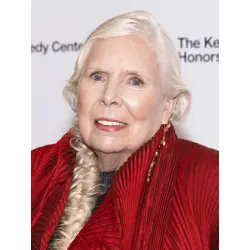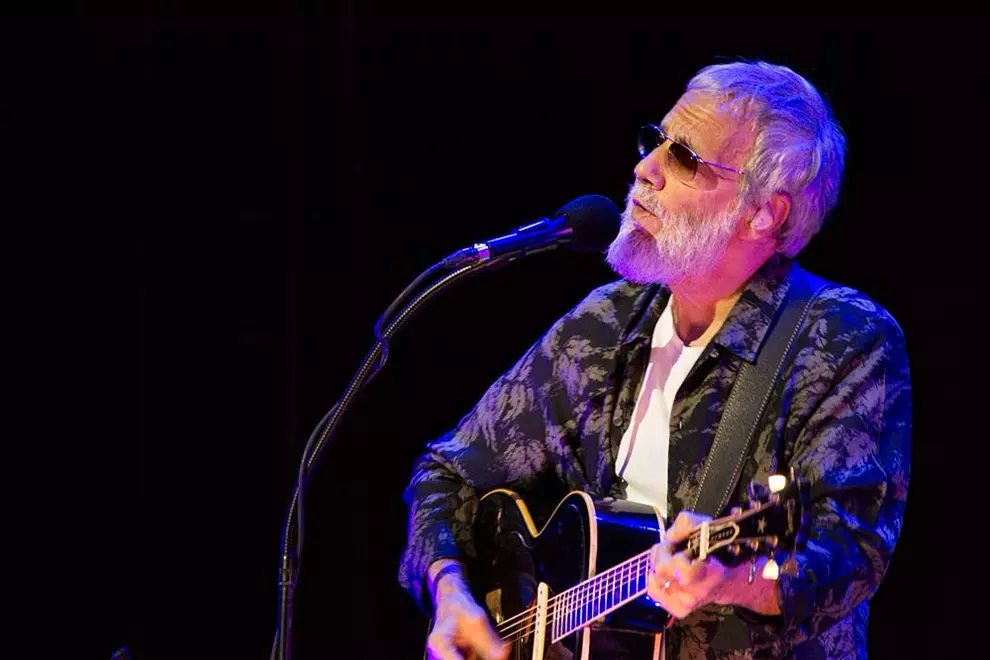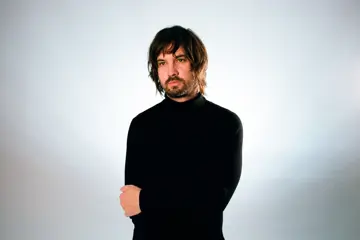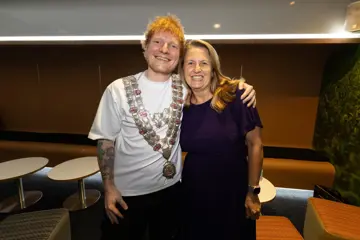 Joni Mitchell
Joni MitchellMark Zuckerberg recently went on a podcast to explain why we all needed AI friends. At first, I assumed this was a headline from The Onion. But no, it’s a real thing a human being said.
Not content with turning friendship into the performative and damaging algorithmic game of Facebook, Zuckerberg now believes that what we need isn’t real, human connection, but fake friends. In a previous era, he would have been taken from the podcast studio directly to a padded cell. But, the way things are going at the moment, I wouldn’t be surprised if he became a member of the US Cabinet.
I often marvel at our ability as humans to add needless layers of complexity and abstraction to what are fundamentally simple truths about our existence. Humanity is, at its heart, a social species. Our success on this planet has not been due to alpha-bro-hunter-gatherer fantasies, but rather our ability to form cooperative relationships.
In a world of constant crises: crises of masculinity and male loneliness, the cost-of-living, housing and increasing social division, it is this simple truth that has the power to heal us, isn’t it? We are surely at our best when we come together to cooperate and help one another. What we don’t need are Zuckerberg’s imaginary friends. What we do need is genuine, human connection.
Don't miss a beat with our FREE daily newsletter
I think about this a lot in a world where almost everything I’m good at and value seems destined to be taken over by AI. I have no interest in a world where everything I read, everything I listen to, everything I watch is generated not by a person, but by lines of code.
I think about this with music. We are currently living through an era of pop-maximalism, and it’s great. Some great and fun music has come out in the past couple of years, but I must confess that nothing by Charli XCX or Dua Lipa has ever floored me like Yusuf / Cat Stevens, with nothing but his cracking voice and a guitar, putting into words a universal and defining truth of childhood and adolescence.
Ever since I could talk, I was ordered to listen.
Nor do I think it is for nothing that the most covered song of all time was so breathtakingly simple that Paul McCartney spent months checking with friends and family that no one had heard it before he dreamed of recording it. And yet who among us hasn’t thought, “Oh, I believe in yesterday.”
I don’t say this to mock pop maximalism. I am sure there are many people who have experienced just the kind of human connection I am arguing for in the crowd at a Charli XCX or Sabrina Carpenter concert. But we do well to remember the simplicity of one voice, accompanied by one instrument speaking the truth. Joni Mitchell's despair that they paved paradise to put up a parking lot will outlive those very car parks.
What I am saying is that AI might be able to mimic some things, but it will never speak the fundamental truth of music (or humanity).
All of this was brought home to me when I went to see The Ballad of Wallis Island at the Sydney Film Festival. The screening looked to be sold out, and I cannot recall the last time I went to see a film with 2,000 strangers packed into the cinema.
It’s a beautiful and hilarious film that pivots artfully from laugh-out-loud funny to hand-me-the-tissues within the space of a line. In fact, writer and star Tim Key delivers jokes so fast that the audience was regularly laughing from the last joke over the next, so that we missed a line or two. But that didn’t bother me at all. I had forgotten the joy of sharing in that experience with strangers, and I felt more connection with those strangers than Zuckerberg ever will with his imaginary friends.
Then, there was the soundtrack. Tom Basden co-wrote the film and wrote all of the songs, which he performs in the film with Carey Mulligan. In interviews, he explained that the film uses the live performances from the set. They felt that the shaggy intimacy of them matched the film better than studio perfection.
And here is my point: I do not want Zuckerberg’s fake friends. Nor do I want the convenience and computerised ‘perfection’ of AI art. At times, I am even worried about the endlessly quantised and auto-tuned perfection of much modern music. It has its place, but I think in a world where inauthentic AI-generated slop becomes the norm, I will crave the shaggy intimacy of Wallis Island more and more.
What I crave more than anything is to experience laughing out loud with 2,000 real humans, to cry shamelessly when someone expresses truth in song, to read words that have poured from someone’s heart onto paper. What I want is to live in a world of real human connection.
The Ballad of Wallis Island is such a special film for me because of what is at its heart. It is a film about human connection, and experiencing it in a packed theatre only drove that point home further. The future may belong to Zuckerberg and ChatGPT and Elon Musk and all the other tech bros and AI bots, but I, for one, still believe in yesterday.















